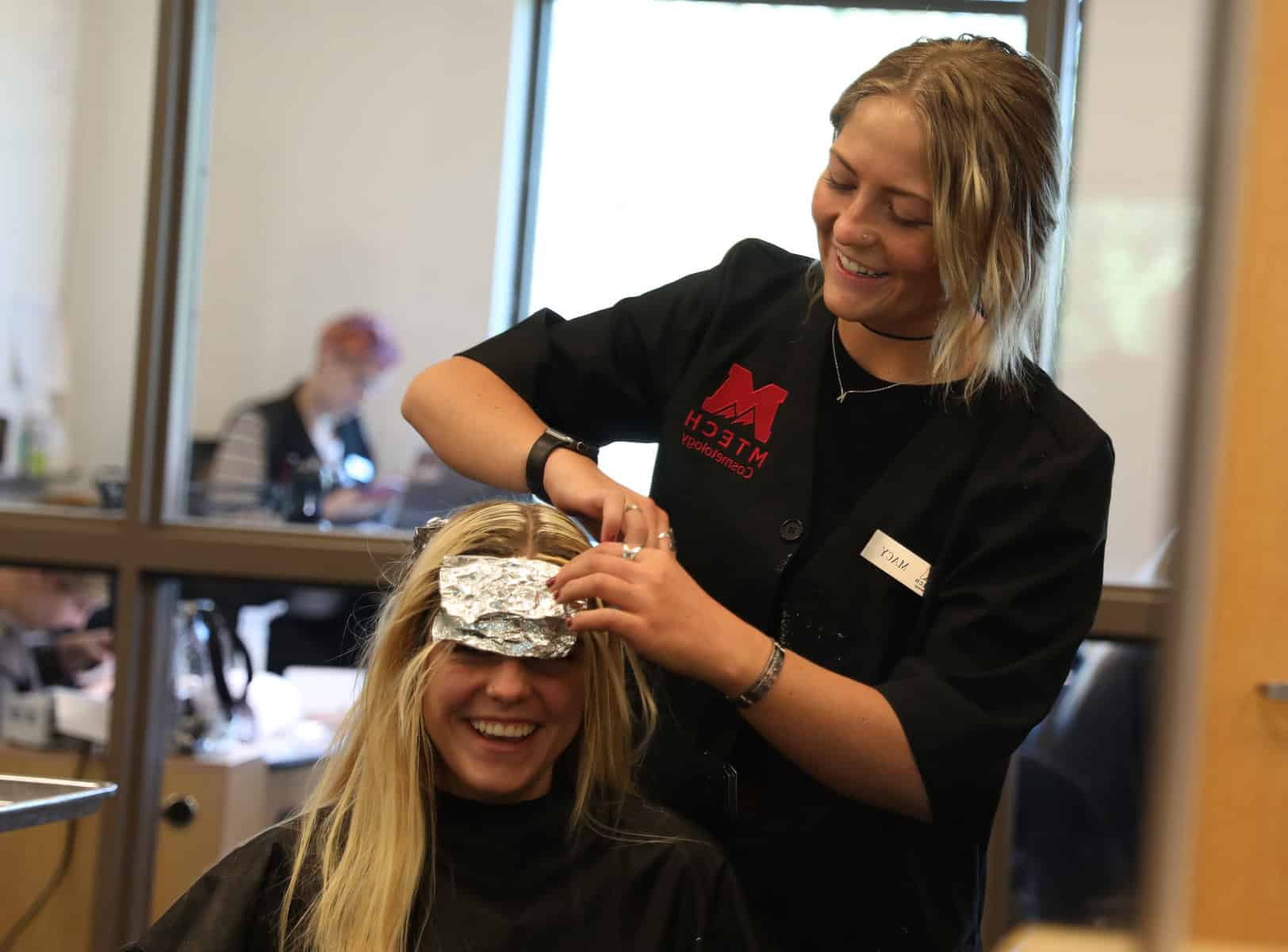
BYU business student Kaylia Lundgren is currently a hairstylist in Utah County and initially looked into hair school as a way to fund her college goals.
“My mom has had tons of medical problems. She’s had four open heart surgeries, and because of that I knew my parents couldn’t put me though school,” Lundgren said.
During her sophomore year of high school, Lundgren found out that if she stayed enrolled in high school, she would be able to do cosmetology school at Mountainland Technical College for free. Hair school was not something she had dreamed about, but when she discovered she was good at it, she realized it could be a way for her to afford school.
“I finished my credits as a junior in high school. I doubled up on all my credits my junior year so I went to summer school and didn’t take any elective credit and just did my requirements. My senior year, I went to hair school full time,” Lundgren said.
Despite all these accomplishments, Lundgren said she still feels the effect of “hair girl stereotypes.”
Misconceptions and stereotypes about cosmetology students can be found across Utah Valley. “We’ve all heard it before — hairdressing is for dumb girls. People that weren’t smart enough to make it in college. People that lack focus,” Cool Beauty Consulting’s website says.
“I feel like people automatically put me in a box when they find out I do hair because they are just like, ‘Oh you’re just a hair school girl,’ and then they are genuinely surprised when it comes up that I do tech and own a tech startup,” Lundgren said.
According to Lundgren, this has been extremely frustrating because she always feels like she needs to prove herself.
Hair school at MTECH took Lundgren nine months to complete and was at the school for 40-50 hours every week. Every day she would wake up and go to early morning seminary and then head straight to hair school until about 5 p.m. On Saturdays, hair school started at 6 a.m.
Lundgren said the first half of the day they would work on theory and book work, and the second part of the day focused on taking clients in the salon. The day she completed hair school she moved into her apartment in Provo and started BYU the following week.
“Because I went to hair school, I was able to pay for college later on which is a huge blessing,” Lundgren said.
Lundgren now works as a hairstylist and owns a tech startup all while studying entrepreneurship at BYU. She said many people in the salons she has worked with are also going to a university.
Sheridan James is currently in hair school and has always wanted to be a hairstylist, yet she said she feels as though people think it is just a way out of college. “It’s frustrating when people just assume you’re dumb … I chose this career because it’s what I am passionate about. Not because I couldn’t get into college,” James said.

Kenedee Harrison had a similar experience with people thinking she was “dumb” for going to hair school while in high school. Harrison also attended MTECH in high school.
“They said, ‘Oh you couldn’t get a real job so you went to hair school’ but I was like, ‘No, I did hair school so I could have it on the side while I was in college,'” Harrison said.
Ben Harmer is a barber in Salt Lake City and went to cosmetology school at Paul Mitchell. He said being one of the few men in school, he encountered a few stereotypes. “Before people got to know me, they automatically assumed I was gay or at least bisexual, which I’m not,” Harmer said.
Despite the stereotypes, an estimated 285,980 people are licensed hairdressers, hairstylists and cosmetologists, according to the US Bureau of Labor Statistics.
Hairstylist Aunnika Stone works at Studio 1030 on BYU campus. Stone said she feels like being a hairstylist is a way for her to express her artistic abilities.
“When I did hair school while I was a student in high school that was kind of where I found art for myself. That’s what I love about it, is that it’s where I can be an artist,” she said.




